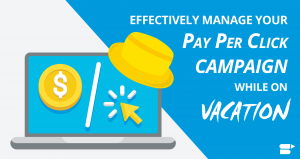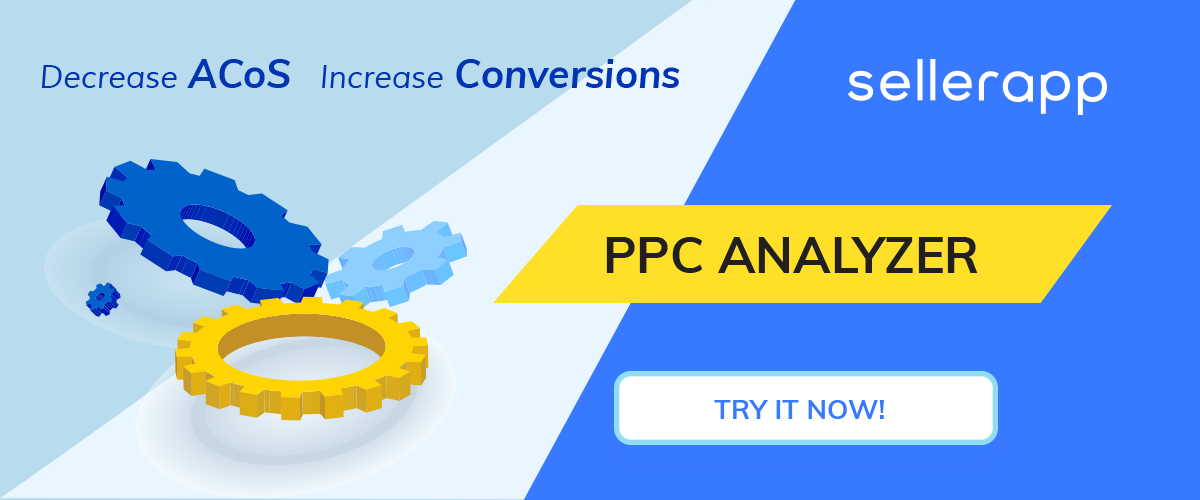Whether you are beach-bound for surf and sun or heading home for holiday cheer, the time before a vacation is always a whirlwind of preparations.
And if you’re in the digital advertising game, that can mean you might be wondering about how to make sure your pay-per-click (PPC) advertising campaigns continue to perform while you’re out.

As effective and relatively simple as PPC advertising can be, it has one key downside: It can be time-consuming to manage.
Because it requires keyword bidding and other relatively high-maintenance tasks, effective PPC management could require rushing from the beach back to your laptop to update your bids—or rather, it would, if there weren’t robust PPC automation tools to do the work for you.
If you’re preparing for an upcoming vacation, this is a great time to learn the art of bid automation.
Google Ads and other platforms offer sophisticated PPC automation tools, and in fact encourage their customers to use them. So why not give them a try?
In this article, we’ll cover the basics of how to get started.
- Don’t start a new campaign right before you leave.
Campaigns that just started often require a lot of work monitoring bids and keywords and fine-tuning them to perform better.
It is also important to ensure that your website is optimized to increase conversions, so your PPC campaign doesn’t fall flat once a user reaches the landing page. If you don’t have someone you trust to effectively tune up your brand new campaign while you’re away, you may want to communicate to coworkers and clients that it’s better for the new campaign to begin when you get back.
Google Ads offers simple tools to automate the start and end date of your campaigns. (Not all PPC platforms are as good with their scheduling offerings, so make sure to check.) You can set the start date for the day or day after you return from vacation so you can come back to it refreshed and make it a priority.

- If you aren’t already, use automated bid management.
Most PPC platforms have well-developed automated bid tools to simplify the highly labor-intensive process of bid management. We’ll use Google Ads as our example for this article because their tools are especially robust and easy to understand.
Google Ads’ automated bids can be targeted via any of the seven bid strategies Google offers. Each strategy targets a different metric, so you’ve got your choice of targeting:
- Cost per acquisition (CPA)
- Return on ad spend (ROAS)
- Number of clicks
- Number of conversions
- Search page location
- Outranking share
- CPC
Which metric is right for you is a complex question that you’ll need to address with relevant stakeholders. And it’s good to look at the question in the long term because one great thing about bid automation is that it’s not just for vacations. It can also be a huge time-saver for your normal workflow.
Note that many of these strategies require elements such as conversion tracking to be turned on in order to crunch the numbers on your bids, so be sure that you’ve got all the relevant performance tracking features enabled. You can also add contextual signals to your bid systems that will tell Google to bid more if, for example, the keyword is coming from a mobile search or it’s being searched by someone browsing in Spanish. It’s a powerful set of tools and mastering it offers benefits that will long outlive your (always-too-short) vacation.
- Delegate tasks and decide when (or if) you’ll be available.
Make sure everyone on your team has a clear idea of what their responsibilities are in regards to your PPC campaigns. And if you’re going to stay plugged in on vacation, it’s also good to consider what best practices you can use to minimize the disruption to your relaxation. One good technique is to set a specific time window of availability in which your team can get in touch with you if something urgent comes up. It’s also a good idea to choose one point of contact, such as email, Slack or a creative project management software, and limit your interactions with the work world to that.
- Don’t forget about social media posts.
If you also manage social media accounts, make sure to take advantage of scheduling features and apps to make one less thing to worry about while you’re enjoying your vacation. You can create a post schedule that will automatically post the content you’ve added to it at a predetermined time.
Some social media platforms, such as Facebook, offer a built-in interface to schedule your posts ahead of time. When you create a post, simply use the drop-down menu that would let you publish it and click “Schedule” instead to set a date and time when Facebook will automatically publish it.
Unfortunately, not all social platforms offer such easy scheduling features, and you may want something that gives you more options anyway. For more sophisticated scheduling tools, many digital marketing professionals swear by apps like HootSuite that allow you to schedule full calendars of posts across multiple social media platforms, as well as offering other content management options.
- Make sure your PPC automation knows when to pause your campaigns.
Finally, you want to keep things from going totally off the rails in a worst-case scenario. PPC ad platforms can automatically pause your campaigns under certain circumstances. One easy and effective way to do this is through Google Ads’ Account Anomaly Detector script.
This relatively simple script compares your PPC campaigns’ data against a set period of previous data (the past several months, for example) and looks for data points outside the range you specify. If the click-through rate on a previously effective campaign suddenly craters, for example, this script will trigger an alert that lets you know something’s off. You (or the person minding your accounts while you’re gone) can then pause the campaigns until someone can figure out the problem.
Automated digital marketing management tools can allow you to enjoy a relaxing vacation without constantly checking bids, keywords and social media. If you hear the beach calling or you’re starting to catch the scent of a delicious holiday meal, these tools offer you a great way to unplug without worrying about your absence.
Related Blogs –
Amazon PPC Course 1: Amazon PPC Setup & Things to Remember Before You Start
Amazon PPC Course 2: Budget & Amazon ACoS Calculation
Amazon PPC Course 3: Setup, Match Types, Keywords & Bidding
Author Bio:
Ronald Dod
CMO And Cofounder of Visiture
Ronald Dod is the Chief Marketing Officer and Co-founder of Visiture, an end-to-end eCommerce marketing agency focused on helping online merchants acquire more customers through the use of search engines, social media platforms, marketplaces, and their online storefronts. His passion is helping leading brands use data to make more effective decisions in order to drive new traffic and conversions.
LinkedIn: Ronald Dod
Twitter: @Visiture_Search
Facebook: @cisituresearchmarketing

